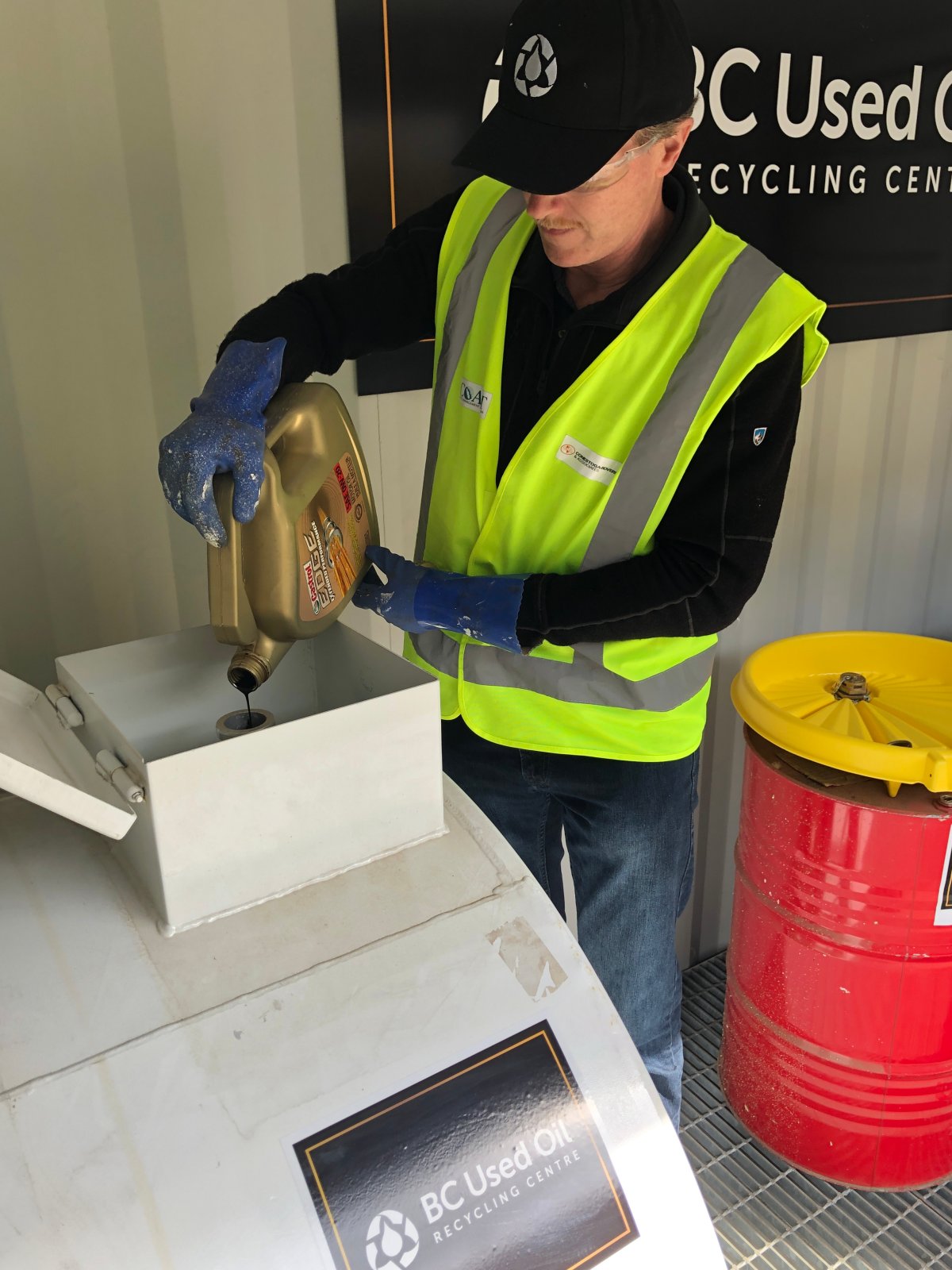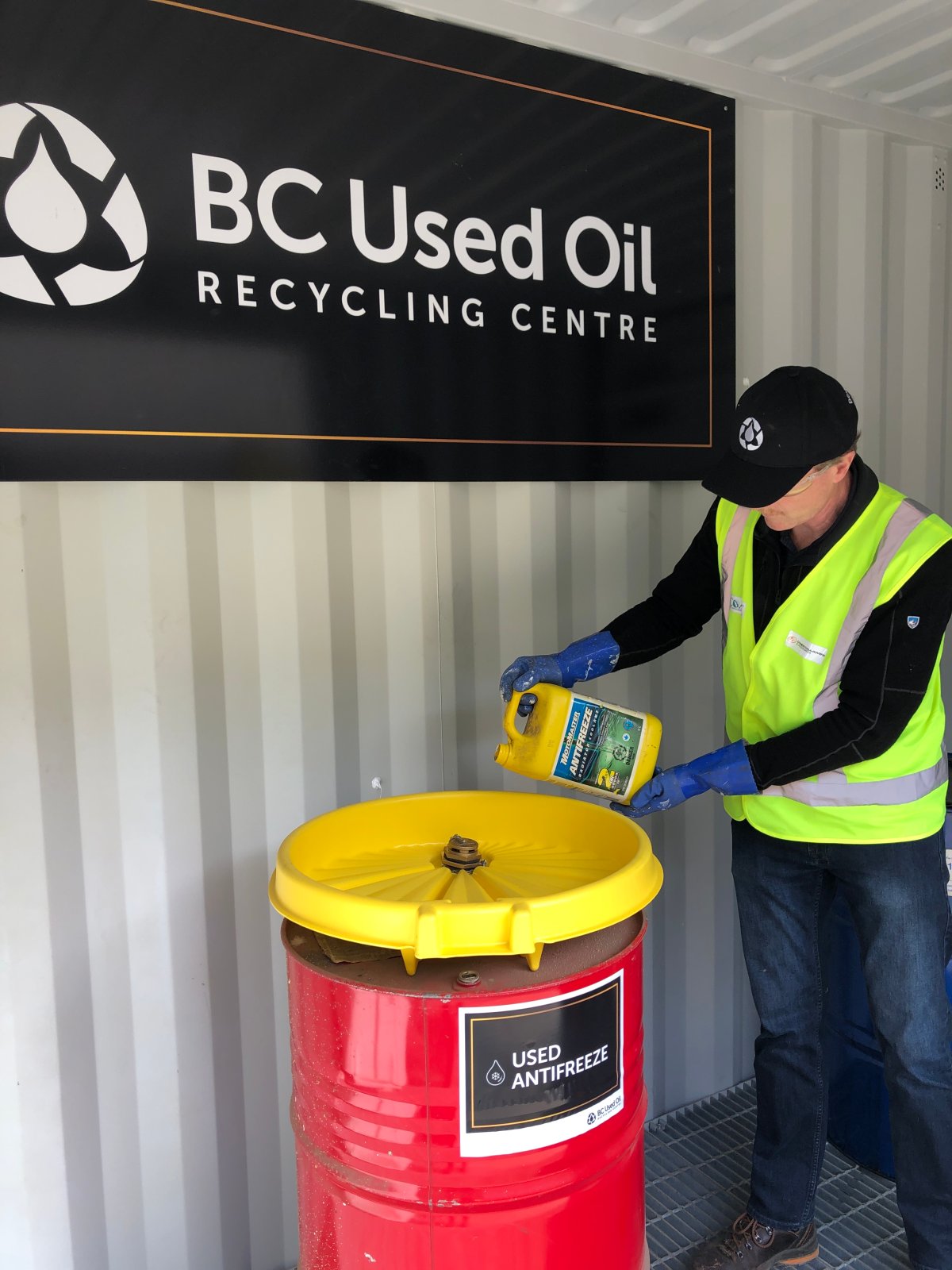Motor oil is an essential part of a car’s makeup – it lubricates the engine and cleans it of debris. But it’s been proven that used motor oil, if not disposed of properly, can be harmful to the environment.

It’s the reason the B.C. Used Oil Management Association (BCUOMA), a not-for-profit group of manufacturers and sellers of lubricating oil, is encouraging B.C. residents to properly dispose of used motor oil at one of its collection facilities.
The organization says it’s an easy step B.C. residents can take to secure a greener future.
“Used oil can be re-refined and turned into new lubricating oil over and over again if we can get it back quick and clean,” says David Lawes, executive director of BCUOMA.
In British Columbia, about 75 per cent of oil collected is re-refined and turned back into new motor oil and other products.
Environmental damage
It’s a good news story given the fact that used motor oil is a pollutant.
“Just a couple of drops of it…can pollute ground well water,” Brock MacDonald, CEO of the Recycling Council of B.C. (RCBC) says.
“It’s really important that we keep that stuff out of the environment and use it as a valuable commodity that can be recycled and reused. Really it’s the consumers’ responsibility within that system to get the oil back to a collection site.”

Get daily National news
Lawes adds it’s important for DIY mechanics to not let used motor oil from vehicles, snowmobiles and lawnmowers linger in garages or sheds.
There, water and other contaminants can seep in and make it hard to turn the product into new oil.
Finding a facility
Instead, Lawes encourages B.C. residents to drop off used motor oil and antifreeze at one of BCUOMA’s 300 public collection facilities on a regular basis.
Residents unfamiliar with the centres are able to plug their addresses into the BCUOMA website or can use the RCBC app to find a location and operating hours closest to them. There, dropping off used materials is easy and free, thanks to a charge paid by the first seller.
“It becomes a matter of finding where your most convenient location is and then just making a habit of dropping it off when you have some oil that you’ve collected from your car or motorcycle.”
A better future
Lawes notes that B.C. has the largest re-refinery in Western Canada, where suitable used oil is re-refined through a process of dehydration, defueling, distillation and hydrotreating to return oil to its original state.
The results are base oils with improved oxidation, stability, colour and antioxidant response, research shows.
Used oil derivatives can also be transformed and used in new products like cars, scrap metal and even guitar strings.
To learn more about BCUOMA and to find a drop-off location near you, visit the BCUOMA website or download the RCBC app.



